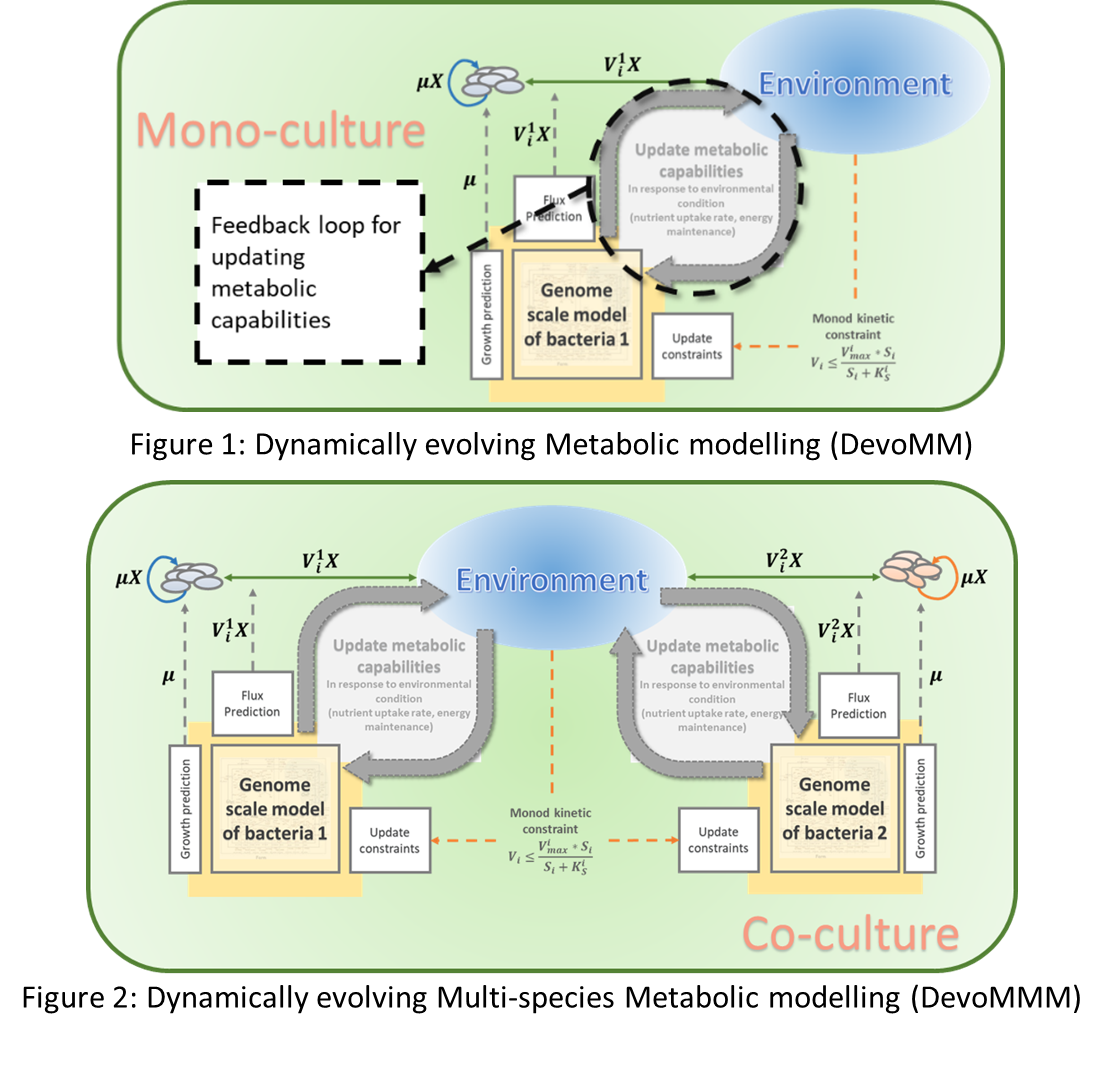Vibrio cholera El Tor (VC El Tor), causative bacteria of cholera disease, has a unique fermentation ability to consume glucose, produce neutral fermentation by-products and complete respiration end-products in an overflow strategy of metabolism. The secretion products in the medium of growth, in turn, can modulate the bacteria's metabolic capabilities as a feedback system and can determine the fate of bacteria. To predict the metabolic behaviour of such bacterial systems with a feedback loop (changes in the environmental condition modulate the metabolic capabilities), we have developed the Dynamic evolving species metabolic modelling (DevoMM) framework based on Pirtâs law [1]. The framework considers, however, the Non-growth associated maintenance parameter in a genome-scale metabolic constraint-based model (COBRA model) represents the energy requirement for the cell to sustain its biomass which is fixed under specific extracellular conditions, deviations from these reference conditions lead to metabolic shifts and adjustments of the cellular nutrient uptake or maintenance requirements (NGAM). The major challenge in this framework is estimating the change in the maintenance requirement (NGAM) based on the presence of un-dissociated acid and pH of the growth medium. To address this, we use the relationship developed by Tack I.L.M et al., (2018) [2] for the influence of environmental conditions on maintenance requirements to estimate NGAM at specific environmental condition.
Furthermore, this evolution in the metabolic capability of bacteria with the environmental condition can form a basis for the cross-talk in a microbial community. Cross-feeding of acidic fermentation by-products from E.coli can modulate the survival of VC El Tor when co-cultured in a glucose-rich environment (observation from Sengupta et al., 2017 experiment [3]). DevoMM is extended to a multi-species, dynamically evolving Multi-species Metabolic Modelling Framework to predict the cross-talk in the microbial community and evolution in the metabolic capabilities of individual bacteria in the community. Together, these frameworks predict the survival benefits of VC El Tor in a glucose-rich medium and, when grown with E.coli in the same glucose-rich setting, death of VC El Tor. In Conclusion, the study highlights the importance of modelling evolving metabolic capability in the COBRA model.
The schematic of the modelling framework is shown below:


